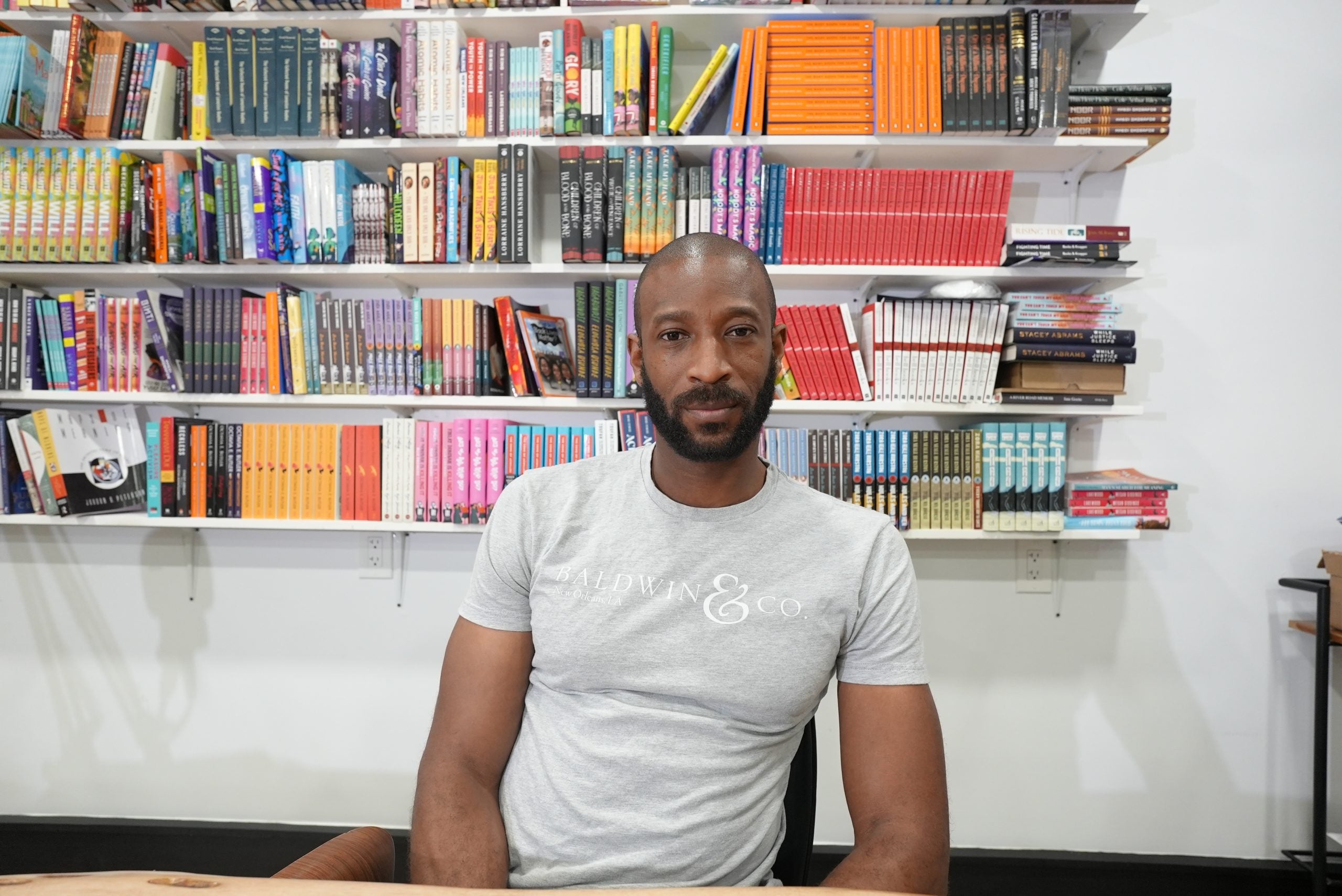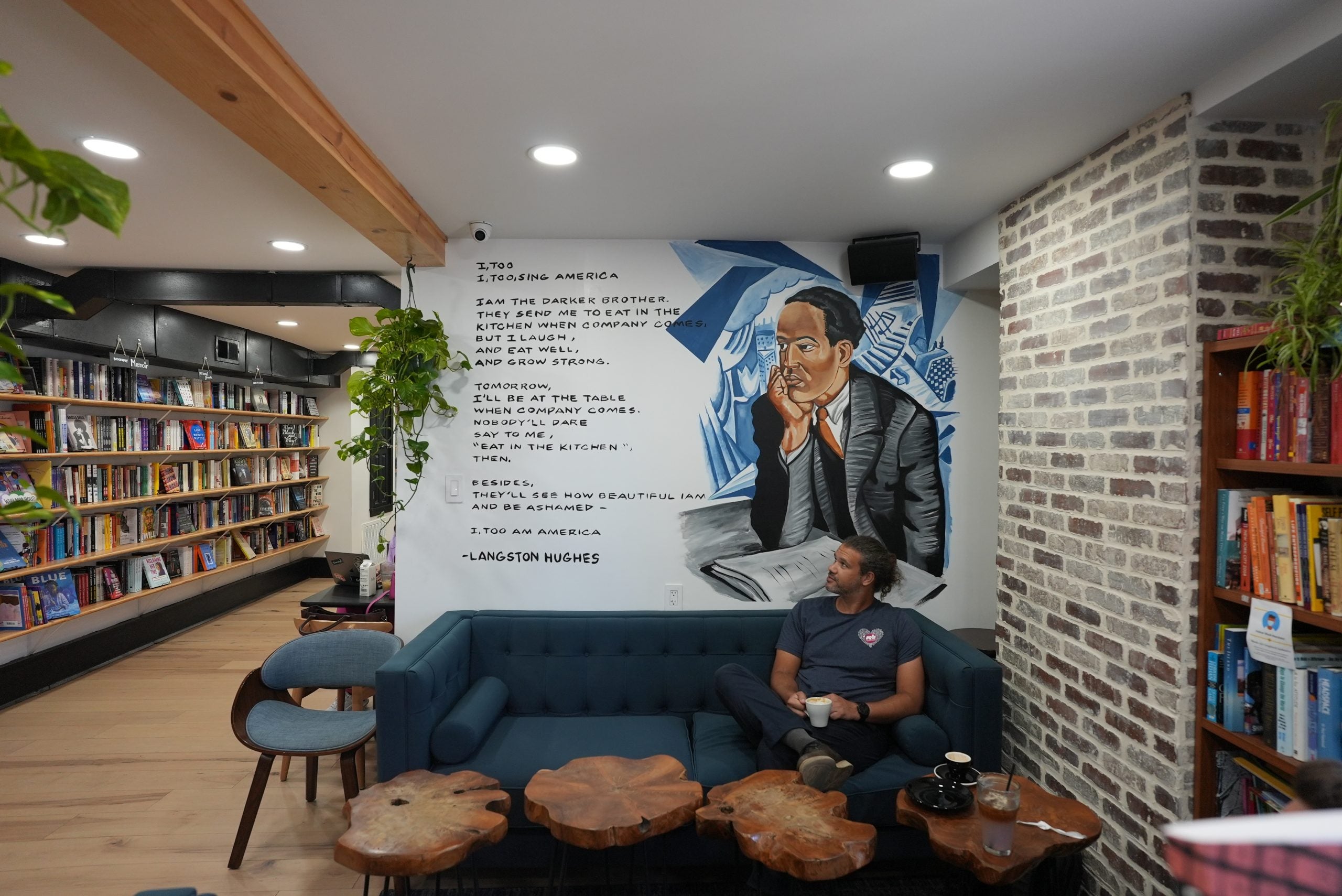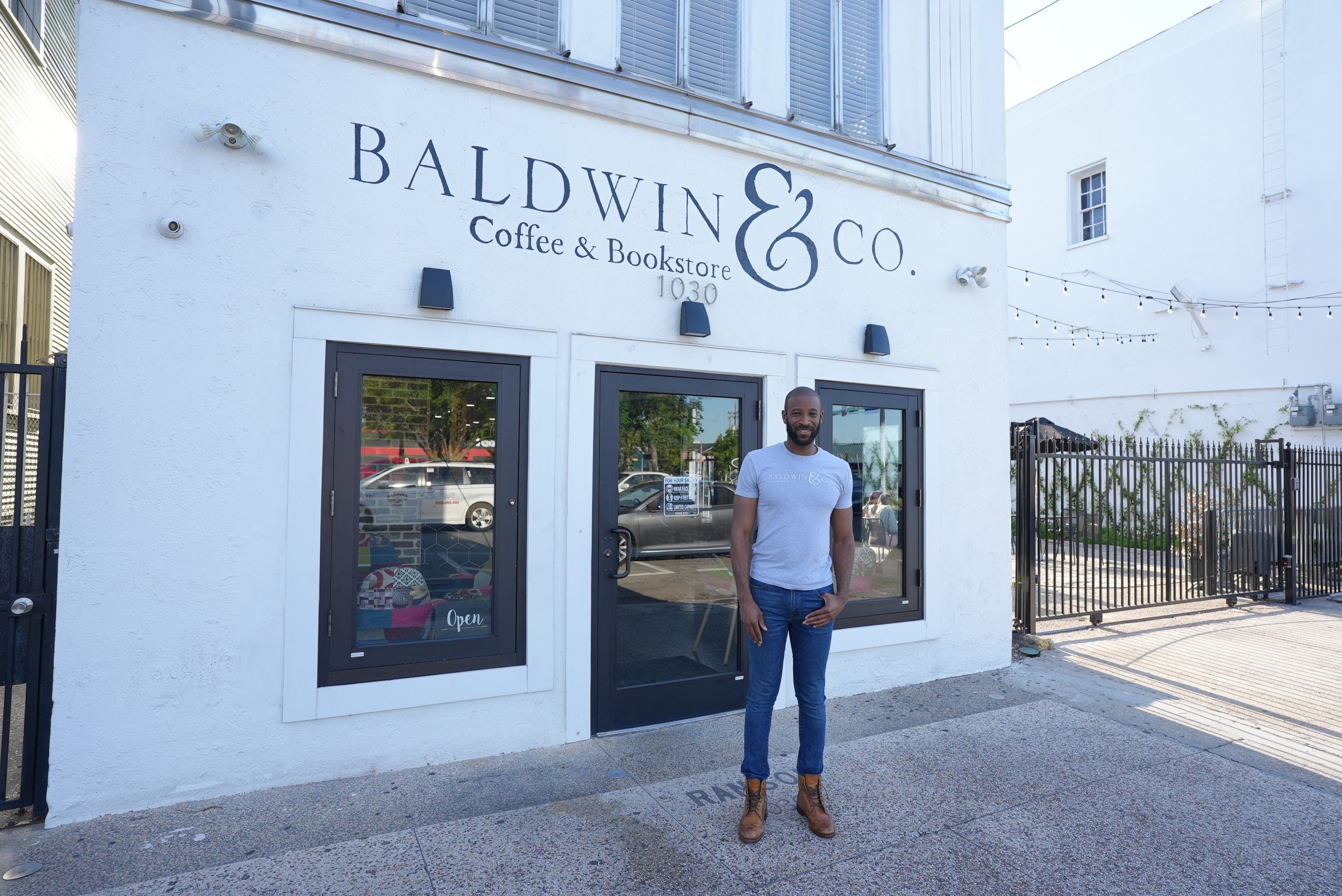
You can get a cup of coffee or tea from any one of the hundreds of coffee shops in New Orleans. But the proof is in the energy: There is nowhere like Baldwin & Co.
Inspired by one of the greatest Black authors and activists that ever lived, the space is life-changing. The change happens beyond the books and specialty drinks on the menu named after some of James Baldwin’s most significant works. It also comes from listening to conversations as the chairs fill with some of the brightest minds in the city: politicians, professors, entrepreneurs, students, and engaged residents.
“It’s a building of excellence. You get a certain aura when you walk into Baldwin & Co.,” founder DJ Johnson tells ESSENCE. “You feel like the best version of yourself because you feel like you’re in a school of enlightenment.”
And there are very few figures more enlightening than James Baldwin. For Johnson, Baldwin’s writing style and how he articulated the rage of life as a Black man in America is why he connected with the author the most.
And while Baldwin’s words may be the inspiration for the café, the Black women in Johnson’s life were the foundation. He attributes his love for reading to his mother, who knew early on the value of books. She was a single mother working three jobs while raising seven children. Yet, amid her work schedule, she found time to instill the importance of reading on her kids.
“There’s no greater influence on the planet than a Black woman. The women in my life have always played a prominent role in who I am,” he says, mentioning his mother, grandmother, aunts, and his late cousin, Loretta Harrison. Her restaurant, Loretta’s Pralines, is just around the corner from the shop. Harrison, who passed away on Feb. 16, 2022, is the first African-American woman to successfully own and operate a praline company in New Orleans.
“Loretta was always a huge inspiration to me,” he says. “She had a relentless work ethic to build that business to what it is today, and she did it out of love.”

Baldwin & Co. seeks to have a similar lasting legacy amid a time of increased gentrification in the city. Located in New Orleans’ Faubourg Marigny neighborhood, it’s a vibrant community where the land was initially sold to Black women.
“Originally, when Count de Marigny subdivided the Marigny neighborhood, he sold land to free women of color,” says Mikhala W. Iversen, founder of All Bout Dat Tours.
“When the Americans purchased Louisiana territory in 1803, they tried to get their hands on the Marigny subdivision. But Count de Marigny’s son didn’t like Americans. He thought they were rich without dignity because they were human traffickers [who] sold crops from forced labor camps in plantations and through the slave trade,” she says. “He would rather sell to free women of color than to the white, racist, and what they called ‘unsophisticated’ Americans.”
But that history hasn’t slowed a rapid change.
“Marigny is highly gentrified now,” Iversen says. “It’s much harder for Black people to obtain homeowner loans to buy properties.”
The most recent report from The National Community Reinvestment Coalition (NCRC) found that New Orleans is “gentrifying at an abnormally rapid rate” compared to other cities in its Gentrification and Disinvestment 2020 report.
“We looked at 392 census tracts or neighborhoods in New Orleans for the study,” says Jason Richardson, the senior director of research for NCRC. “Sixty-four percent of them were considered eligible to gentrify based on our methods. The 13 that did gentrify based on our criteria is about 20 percent, which pushed New Orleans to the number five spot for gentrification.”
With that in mind, gentrification trends sparked speculation early on about who purchased the historic corner property where Baldwin & Co. and Johnson’s other business, the New Orleans Art Bar, sit at Elysian Fields and St. Claude Avenue. The property was formally home to the Black-owned sandwich shop Gene’s Po-Boy, founded by Eugene “Gene” Raymond Theriot in 1968. The restaurant closed in 2019, and the property was listed for nearly $5 million.
There was chatter among the community that the new owner would turn the property into condominiums. But Johnson cared less about confuting the claims by speaking out after purchasing the property. He confuted them by opening Baldwin & Co.

“People were like, ‘Look, you have to come out from behind the shadows. People need to know this is a Black man doing this,” he recalls. “I never wanted the focus to be on me, just the mission.”
Johnson says he understands how his story – a young kid from a single-parent household, growing up in impoverishment, leaving New Orleans, then coming back to purchase an entire corner – is a good one. But as he says, he doesn’t want Baldwin & Co. to be about him. Instead, he wants the focus to be on the work he and his staff are doing in the community, including the book festivals and the free giveaways in place to ensure Black children have access to books.
“Being an avid reader saved my life and gave me the opportunity to purchase these properties,” Johnson says. “I’m not naturally an intelligent person, but I’m obsessed with learning … an obsession that comes from reading. Reading is the gateway to success. It’s something about the written word that tattoos information in our brains. That’s invaluable because it’s that information that goes out and transforms the world. If we want to see a better world, we all have to become readers.”